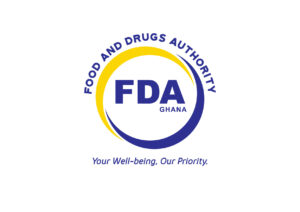FDA confirms Moshosho rice was wholesome before distribution
 The Food and Drugs Authority (FDA) has dismissed claims that expired Moshosho white Doubled Sortex Indian Rice, totaling 22,000 bags of 50kg, was fed to students across the country.
The Food and Drugs Authority (FDA) has dismissed claims that expired Moshosho white Doubled Sortex Indian Rice, totaling 22,000 bags of 50kg, was fed to students across the country.
Dr. Delese Mimi Darko, Chief Executive Officer of the FDA, addressed the allegations at a press conference in Accra, confirming that the rice was inspected and deemed safe for distribution.
The claims were initially raised by North Tongu Member of Parliament, Samuel Okudzeto Ablakwa, who accused the Free Senior High School Secretariat of distributing expired rice.
Dr. Darko explained that on December 4, 2023, Lamens Investments Africa Limited, the importer, requested a shelf-life extension for the rice.
The company submitted a laboratory report from the Centre for Laboratory Science and Research (CSLR) and the Food Research Institute (FRI), dated November 27, 2023, confirming the rice met quality standards.
However, the FDA did not grant the shelf-life extension on December 15, 2023, because the request was made by the importer rather than the manufacturer.
Furthermore, the attached certificates indicated a product expiry date of December 2025, but the FDA clarified that only the manufacturer had the authority to request a “best before” date adjustment.
Dr. Darko disclosed that on December 20, 2023, the FDA’s Kumasi office received reports about the repackaging of rice at a National Food Buffer Stock Company Limited (NAFCO) warehouse.
Following this, FDA officers, accompanied by the Kumasi Police, inspected the facility, which had previously been sealed by the police.
During the inspection, they confirmed the repackaging activity and re-sealed the premises.
As a result, an administrative fine of GH¢100,000 was imposed on the importer for repackaging the rice in violation of the Public Health Act, 2012 (Act 851).
Dr. Darko explained that after reviewing the preliminary investigation report submitted by the FDA Kumasi office, it was discovered that the rice had a “Best Before End” date of December 2023, not an “Expiry Date” as originally stated in the submission with the analytical report from the CSIR.
In response to these findings, the FDA reviewed its earlier response to the importer’s request and informed them that shelf-life extensions should adhere to the manufacturer’s guidelines.
Lamens Investments Africa Limited, the rice importer, made a partial payment of the fine on January 3, 2024, and committed to settling the remaining balance.
“Accepting part payment does not in any way undermine the FDA’s regulatory mandate, instead, it allows enforcement actions to continue without delay while ensuring compliance with outstanding obligations,” she said.
Dr. Darko explained that from December 20, 2023, to January 24, 2024, the warehouse remained sealed, with occasional openings for cleaning and ventilation, all done under the joint supervision of the FDA and the Ghana Police Service.
She mentioned that on December 21, 2023, the manufacturer, Satyam Balajee Rice Ind Pvt Ltd. from India, through Lamens, confirmed that the rice could be consumed within three years if stored properly in a dry environment and regularly fumigated.
This led to a one-year extension of the Best Before End (BBE) date, extending it to December 2024.
Dr. Darko also noted that the manufacturer’s statement was supported by a document from Bureau Veritas India, a certification company, which verified the manufacturer’s claims.
“The FDA CLSR as a result did a thorough review of the analytical report from CSIR/FRI, and its own confirmatory analytical report, of samples submitted by its Enforcement Directorate with confirmed that the rice was wholesome at the time of the analysis,” she said.
Dr. Darko said that the Authority granted a provisional extension for the rice’s shelf life until April 30, 2024, rather than the December 2024 date requested by the manufacturer.
She noted that during subsequent storage inspections by the FDA Kumasi, some rice bags were found to be damaged, with signs of weevils.
The importer’s attention was drawn to these findings by FDA officers.
In response, the importer, in a letter dated January 22, 2024, invited the Ministry of Food and Agriculture’s Plant Protection and Regulatory Services Directorate (PPRSD) to assess the situation and determine if fumigation was necessary.
The PPRSD, in a letter dated February 6, 2024, confirmed that the level of infestation was low and that fumigation or pesticide treatment was not required.
To ensure the rice’s quality, samples were sent to the FDA laboratory, which issued a report on February 6, 2024, confirming the rice met safety standards.
Dr. Darko reaffirmed that the FDA operates with full independence, transparency, and professionalism, and emphasized the Authority’s commitment to ensuring food safety and safeguarding public health.
Source: GNA
